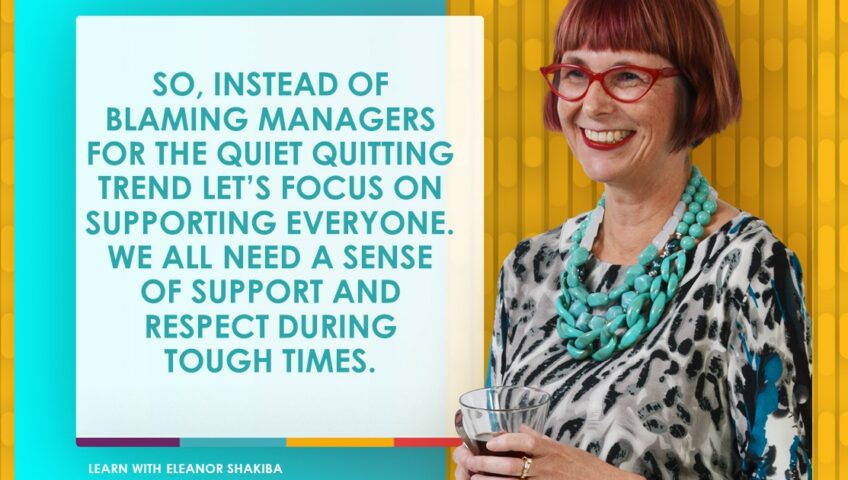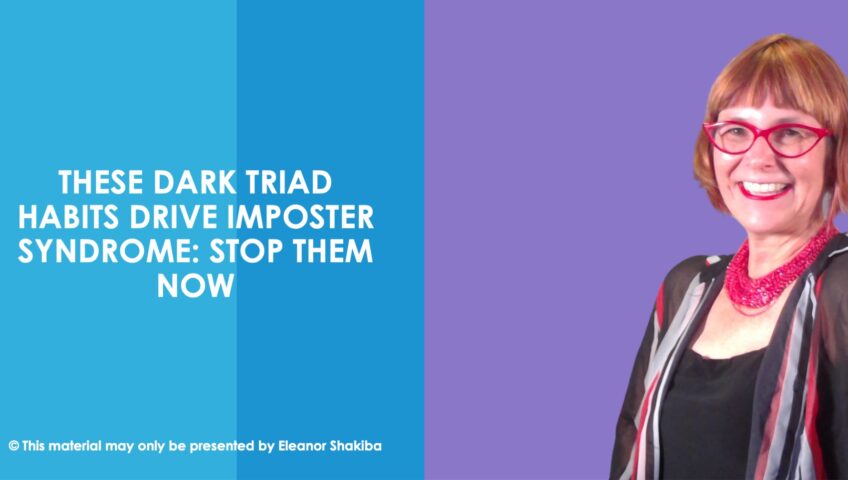Being fully in control of your day might seem like the best way to shine at work. But in fact, it decreases your flexibility and increases your stress. Sure, many successful professionals believe that planning and being ‘across everything’ will increase their impact because it means they’re ‘in control’ of their day. Unfortunately, that’s just not true. I’ve been working with leaders and high achievers for over 20 years. Time after time I’ve heard clients – especially female managers – describe a devastating cycle of stress and overwork caused by what I call the ‘myth of being in control’. Along with two other myths (the competence myth and the high standards myth) this misconception holds savvy professionals back in droves.
Signs the ‘control myth’ might be holding you back
Here’s what happens. A gifted professional gets promoted. Up until that point, her dedication to being across every detail has led to praise and rewards. But now she’s a team leader. It’s impossible for her to be across everything. However, she still craves control. She keeps trying to predict and pre-empt things that MIGHT go wrong. This just adds to her workload, without helping at all. Soon she has WAAAY too much to do and feels totally out of control.
Free e-book and video tips.Get your copy today!
|
|
Do those signs seem familiar?
If so, you are not to blame for believing the control myth. You have been socialised to think control gives you an edge. Plus you’re human. The desire for 120% control is such a common distorted thinking pattern, psychologists have given it a name: the control fallacy. This is a thinking bias. It causes you to misjudge how much influence you have over events. Either you assume you have NO control over your life. Or you believe you’re responsible for everything. Both of these thinking patterns trigger brutal, self-imposed feelings of overwhelm, shame and stress.
Here’s how to break free
Savvy professionals don’t believe the control myth. They notice and challenge their own distorted thinking patterns – including the control myth. This is very simple to do, once you master the art of self-regulation. I recommend using Neuro Linguistic Programming (NLP) tools to do this. For example, you can use Meta Model questions to bust the beliefs that drive your need for control. Or you can reprogram the unconscious ‘anchors’ that trigger your desire to be across everything, all the time. What I love about these techniques is that once you’ve learned them, you can use them all by yourself. You don’t need ongoing coaching or years of therapy. NLP is fast, fun and easy to learn.
This article was created by Eleanor Shakiba
Eleanor is a leadership trainer and success coach. Her mission is inspiring talented people to become leaders who make a difference. Since discovering her passion for training and development, Eleanor has trained more than 60,000 people. She delivers face-to-face workshops for corporates, online masterclasses for leaders and Positive Psychology retreats for trainers, HR practitioners and leaders.






